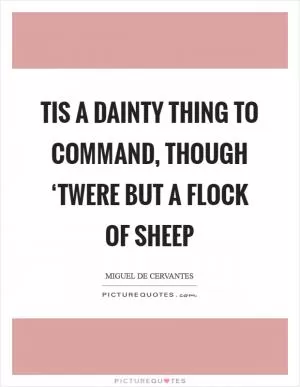A knight errant who turns mad for a reason deserves neither merit nor thanks. The thing is to do it without cause

A knight errant who turns mad for a reason deserves neither merit nor thanks. The thing is to do it without cause
In Miguel de Cervantes' iconic novel, Don Quixote, the titular character embodies the archetype of the knight errant who turns mad for a reason. Don Quixote, a nobleman from La Mancha, becomes obsessed with the chivalric romances of old and sets out on a quest to revive the age of chivalry. However, his delusions and madness lead him to see windmills as giants, sheep as armies, and inns as castles. Despite his noble intentions and sense of duty, Don Quixote's madness ultimately leads to chaos and destruction.The quote, "A knight errant who turns mad for a reason deserves neither merit nor thanks. The thing is to do it without cause," speaks to the idea that true heroism lies in acting without a rational motive or justification. Don Quixote's madness is rooted in his desire to uphold the ideals of chivalry and honor, but his actions are ultimately misguided and destructive. His madness is not without reason, as it is fueled by his romanticized view of the world and his desire to be a hero. However, his madness ultimately leads to more harm than good, as he causes chaos and confusion wherever he goes.
Cervantes uses Don Quixote's madness as a commentary on the dangers of idealism and the folly of blindly following outdated codes of honor. Don Quixote's quest for glory and adventure leads him to make reckless decisions and put himself and others in danger. His madness is not celebrated or rewarded, but rather serves as a cautionary tale about the consequences of losing touch with reality.












 Friendship Quotes
Friendship Quotes Love Quotes
Love Quotes Life Quotes
Life Quotes Funny Quotes
Funny Quotes Motivational Quotes
Motivational Quotes Inspirational Quotes
Inspirational Quotes